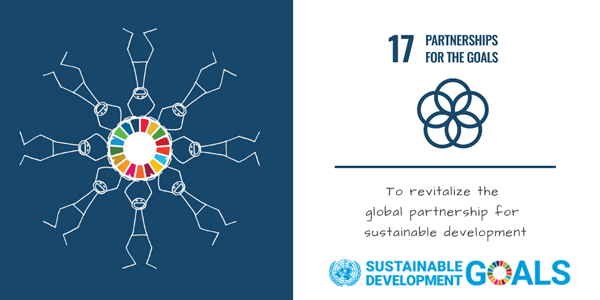Research ethics and integrity as a force for good
- Wits University
While polarisation has emerged as a defining characteristic of our age, ‘good’ ethics can navigate differences to tackle shared challenges.
With multiple wars waging and intersecting with threats of climate change, poverty, and inequality, research ethics and integrity – as an academic and practical concept – can turn anxiety into action.
This was the overriding message at the 3rd SARIMA Carnegie Global Ethics Day webinar themed, Empower Ethics as a Force for Good.
Co-hosted by Wits’ Research Integrity Office and the Southern African Research and Innovation Management Association (SARIMA) Community of Practice for Research Ethics and Integrity (CoP), this annual event has become a critical one for SARIMA’s CoP.
Ethics as a force for good
“We need to empower our institutions, research committees and researchers to do good work in the realm of ethics. We need to dispel misconceptions about ethics. Ethics is not just an abstract area of study for philosophers and academics. It is a process that each of us can engage in to improve our lives, strengthen our communities, and build a better world,” said Eleni Flack-Davison, Head of the Research Integrity Office, and Research Compliance Manager at Wits University.
Flack-Davison emphasised that ethics is not necessarily about agreement or tied to a single set of values. “We can use ethics to guide personal decisions, mitigate harmful outcomes, create a more respectful structure for debate, develop helpful public policy, build and deploy technologies responsibly, and address some of the world’s most pressing challenges.”
Partnerships for sustainable development in research ethics

The 17th Sustainable Development Goal (SDG) is Partnerships for the Goals. Francis Kombe of the African Research Integrity Network (ARIN) presented ways to empower research partnerships, particularly in low and middle-income countries.
“The International Science Council highlights the importance of scientists and policymakers to come together to implement the SDGs in Africa. Partnerships allow stakeholders to identify solutions to problems and take advantage of the enormous opportunities in our context,” said Kombe.
He stipulated the importance of diverse and integrated knowledge in research decision-making. This is particularly pertinent to research that crosses the Global North-South divide and where partners hail from both high- and lower-income countries.
Kombe referred to the various research partnership guidelines, particularly those published by the Swiss Commission for Research Partnership with Developing Countries. These guidelines contain eleven principles that are designed to contribute to sustainable development and help solve local and global challenges. Essentially, the Global South must be integral in crafting research integrity and ethics guidelines:
“Africa is poorly represented in global health research. However, the continent has the highest burden of disease,” said Kombe. “ARIN was established to rectify this poor representation and to nurture and support research integrity in African researchers, institutions, and decision-makers, guided by African perspectives, values and inclusive thinking.”
Dr Retha Visagie, UNISA’s Research Integrity Manager, said that research institutions should serve as a vital space for collaboration and growing intellectual property. “One of the competencies of a research manager should be to create and expand partnering opportunities and balance complex stakeholder relationships,” she said.
In addition to advancing partnerships to empower research ethics and integrity, ethics-based documents, such as the Cape Town Statement on Fairness, Equity and Diversity, should move beyond theory: “Our obligation as research managers and administrators is to go beyond simple awareness and to make the Cape Town Statement a ‘living’ document,” she said.
Artificial Intelligence and enabling ethics
Artificial intelligence (AI) presents challenges for research ethics and integrity. Sidney Engelbrecht of the Research Compliance Department at King Abdullah University of Science and Technology, Kingdom of Saudi Arabia, noted that the research community should collaboratively promote a culture of responsible conduct regarding the use of AI tools.
"Indeed, AI can be useful in healthcare and medical applications. It is also becoming more sophisticated. Recently, researchers entered questions into Chat GPT that were traditionally answered at Master’s and PhD levels. Surprisingly, the study showed that Chat GPT could respond adequately to really complex questions. It was thought that AI could never replace critical thinking, but this is no longer certain,” said Engelbrecht.
He stressed the “mindful” use of AI and commended the various AI regulations on the table, even if they are in their infancy. Specifically, in November 2021, all 193 UNESCO Member States adopted the Recommendation on the Ethics of Artificial Intelligence, highlighting that concrete policy actions needed to ensure that the development, deployment, and use of AI is done ethically.
From statements to implementation
Paula Saner, University of Cape Town’s Research Integrity Manager, noted that while there are ethics and integrity best practice guidelines and statements, they are not legally embedded. “Yes, there are regulations, and we can leverage these regulations to influence policy development. How we do this is to place research integrity as the starting point for research. A responsible researcher is more than an ethical researcher. Responsible research practices filter into all research stages. Most of our institutions already have mechanisms in place to support this,” said Saner.
